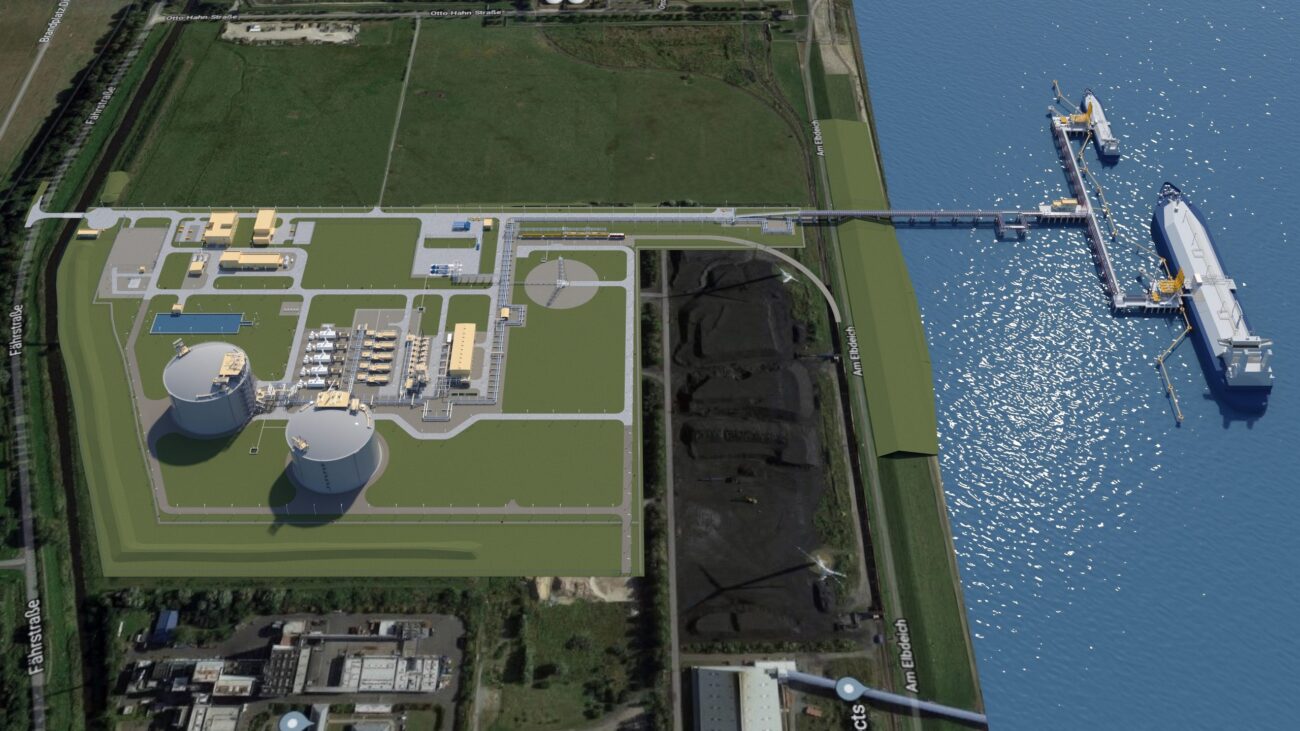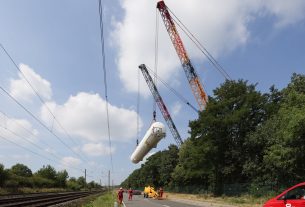Germany – The European Commission has granted approval for Germany’s ambitious plan to construct and operate a cutting-edge land-based liquefied natural gas (LNG) terminal in Brunsbüttel.
This €40 million support measure aims to bolster the country’s energy security, enhance supply diversification, and align with the broader REPowerEU Plan to reduce reliance on Russian fossil fuels.
As part of Germany’s strategic energy policy, the construction and operation of the Brunsbüttel LNG terminal have been envisioned to achieve two primary goals: enhancing energy security and reducing reliance on Russian fossil fuels. The terminal, with an annual capacity of 10 billion cubic meters, will play a crucial role in diversifying energy supplies and ensuring a stable energy landscape. Moreover, the project aligns with the European Green Deal and the REPowerEU Plan, bolstering the transition to cleaner and more sustainable energy sources.
Brunsbüttel terminal
The Brunsbüttel LNG terminal will encompass facilities, including import, storage, and distribution systems. Operated by German LNG Terminal GmbH (GLNG), a consortium featuring the German government, Gasunie, and RWE, this innovative project aims to establish a secure and efficient LNG supply chain. The terminal’s technical specifications have been meticulously designed to facilitate future conversion into a renewable energy carrier import terminal, ensuring flexibility and adaptability in a rapidly evolving energy landscape.
Greener future
The approval of this groundbreaking project holds significant potential for the entire European energy landscape. By reducing dependency on Russian fossil fuels, the Brunsbüttel LNG terminal helps strengthen Europe’s energy resilience and fosters regional energy cooperation. Furthermore, the terminal’s compatibility with renewable energy carriers positions it as a critical component of achieving the EU’s 2030 and 2050 climate targets. The integration of LNG with future renewable energy solutions sets a promising precedent for sustainable energy trade and contributes to Europe’s transition to a greener future.




